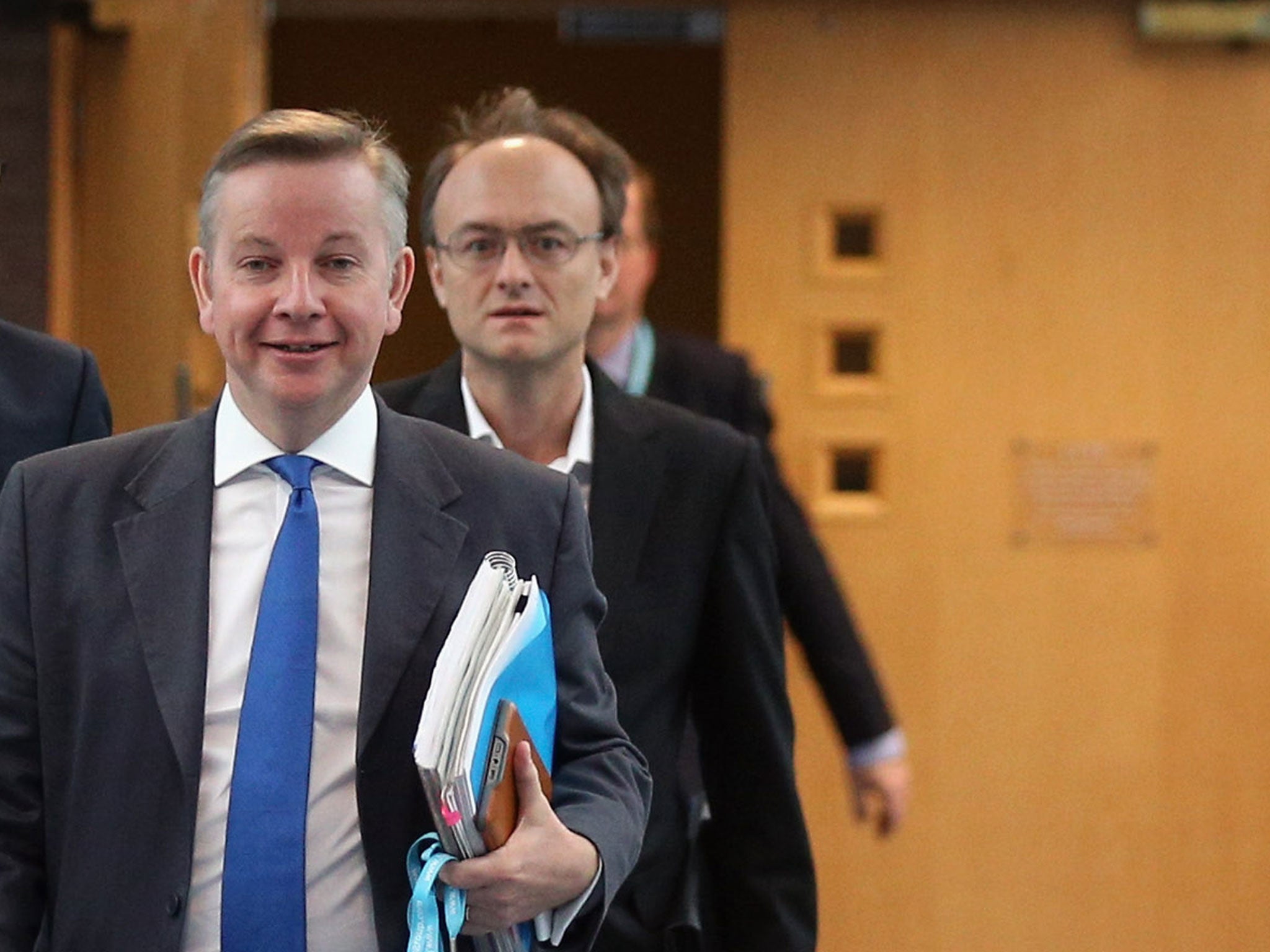Michael Gove adviser says genetics are more important than teaching
Dominic Cummings report claims as much as 70 per cent of a child’s performance is genetically derived

Your support helps us to tell the story
From reproductive rights to climate change to Big Tech, The Independent is on the ground when the story is developing. Whether it's investigating the financials of Elon Musk's pro-Trump PAC or producing our latest documentary, 'The A Word', which shines a light on the American women fighting for reproductive rights, we know how important it is to parse out the facts from the messaging.
At such a critical moment in US history, we need reporters on the ground. Your donation allows us to keep sending journalists to speak to both sides of the story.
The Independent is trusted by Americans across the entire political spectrum. And unlike many other quality news outlets, we choose not to lock Americans out of our reporting and analysis with paywalls. We believe quality journalism should be available to everyone, paid for by those who can afford it.
Your support makes all the difference.The most influential adviser to Education Secretary Michael Gove has penned a report in which he states that a child’s genetics are more important than the teaching they receive.
Dominic Cummings’ 250 page private thesis comes weeks before he is to step down from his post after two years at the Department. In it he attacks a fear of elitism and says that billions of pounds have been wasted on pointless university courses and Sure Start schemes for young children.
Having previously advised Gove before the election, his appointment within the department was blocked by Andy Coulson because he was regarded as untrustworthy.
The report includes a claim that as much as 70 per cent of a child’s performance is genetically derived. He also criticises what he calls a “strong resistance” from politicians to accept “scientific evidence” that is “entirely ignor[ed]” when issues such as social mobility are considered.
What he sees as political pressure to fund scheme such as Labour’s Sure Start is also highlighted. He asserts there is “little scientific testing, refinement and changing budgets to reinforce demonstrated success. Therefore billions have been spent with no real gains.“
He suggests the money should have instead been used to “strengthen world-class humanities, maths and science departments”. However, he slams degree courses at what he calls “third-rate higher education institutions” where “there is a large amount of 'social science' work in economics, anthropology, sociology, literary theory and so on of questionable value both from an intellectual perspective and from the perspective of students."
He also attacks students, claiming that: "Undergraduates should be required to spend more of their time studying," and that "the days of an essay or two per term should end."
According to Cummings’ critique the Department for Education should no longer employ thousands of civil servants, but rather reduce its role to “little more than some regulatory accountancy, and due diligence functions”.
Teachers do not escape his criticism. He writes: “Real talent is rare and mediocrity is ubiquitous.
“While some children will always be blessed by a brilliant teacher, by definition that is not a scaleable solution to our problems”.
Instead, he argues, chains of schools with better management may represent the best way to improve teaching, as well as abandonment of responsibility for teacher training by the department.
Join our commenting forum
Join thought-provoking conversations, follow other Independent readers and see their replies
Comments